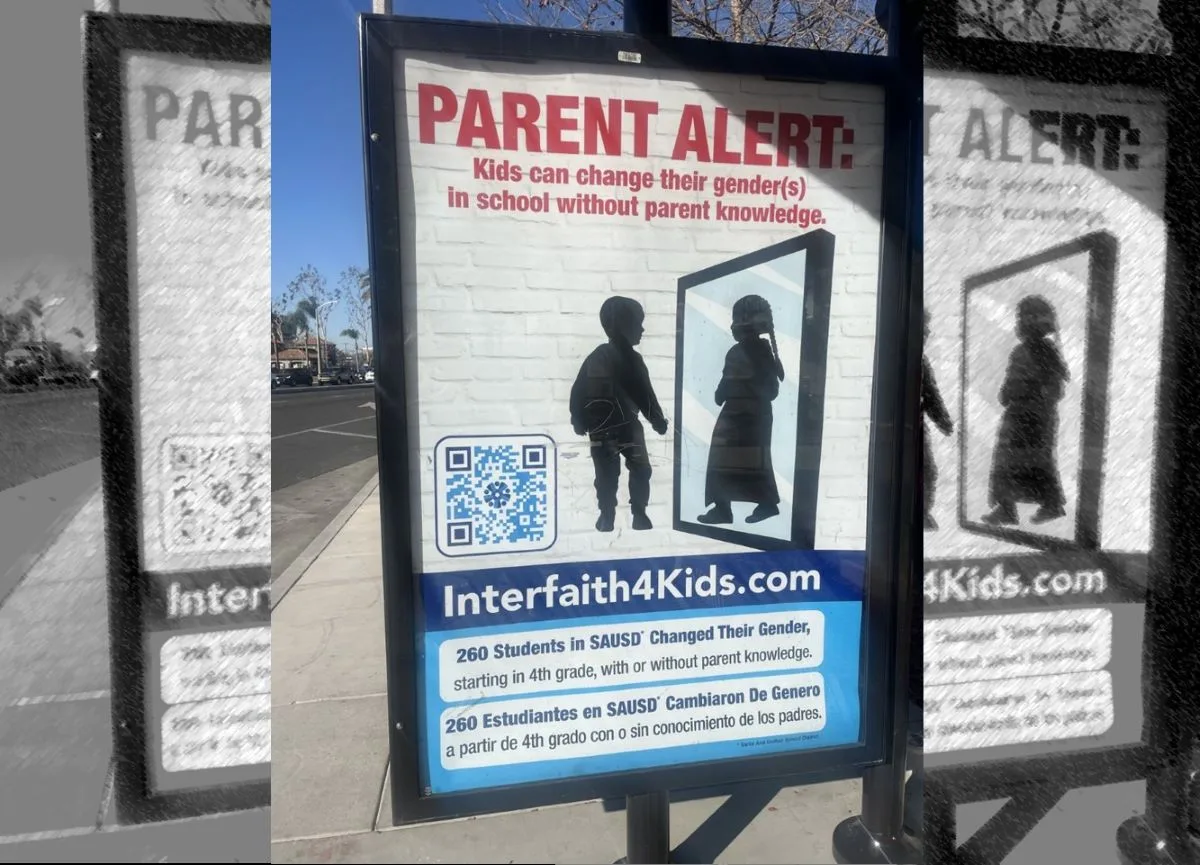
This post was originally published on this site
260 students at the SAUSD have opted to change their gender catetories without informing their parents, according to the Interfaith Statewide Coalition, based on a Public Records Request.
A bus billboard went up on 17th & Bristol in Santa Ana on Thurs, Jan 23rd, sponsored by the Interfaith Statewide Coalition, announcing that schools can change a child’s gender category without parent knowledge. The billboard is in Spanish and English and directs people to their website for more information.
The website informs parents that CHOC has a gender clinic and is partnering with many Orange County School Districts.
The State of California bans school from notifying parents of kids’ pronoun change The law, which is the first in the nation, bans school rules requiring school staff to disclose a student’s gender identity or sexual orientation to any other person without the child’s permission.
Children do not generally get brainwashed into transitioning their gender; instead, they may be experiencing gender dysphoria. Gender dysphoria is a feeling of distress that children associate with the gender they were assigned at birth. Children who question their gender are usually trying to understand and relieve that distress.
Trying to change a child’s gender identity can be harmful and cause permanent damage to their mental health.
“Reparative” or “conversion” therapies are psychologically harmful and have been condemned by the American Psychological Association, the American Medical Association, and the American Psychiatric Association.
Treatment for gender dysphoria can include:
- Exploring the reasons for the child’s discomfort
- Considering alternative ways forward, such as living in their birth-assigned gender or transitioning
- Starting treatment with puberty blockers, then cross-sex hormones, and finally gender reassignment surgery
Many people are opposed to such treatment as kids can change their minds down the road but by then their bodies have been transformed, sometimes permanently.
According to 2022 statistics however, only around 3% of trans people experience some form of regret, but may not opt to detransition.


